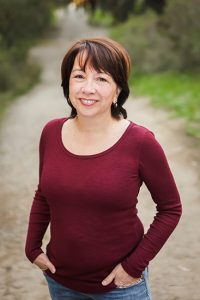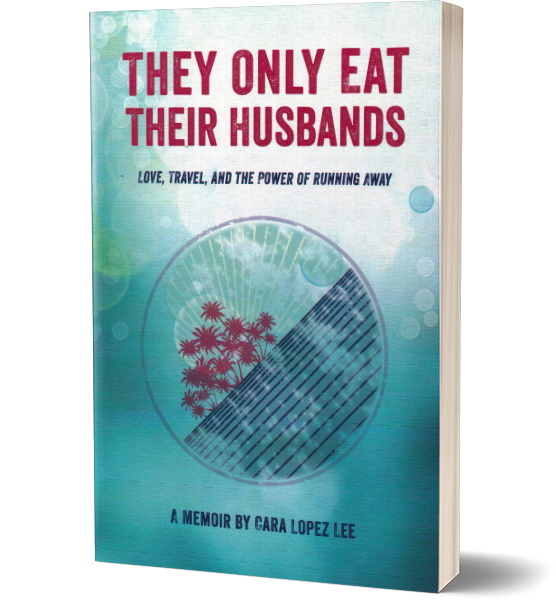Perhaps you’ve heard there are only two stories: 1) someone goes on a journey, or 2) a stranger comes to town. So, there’s really only one story, because “a stranger comes to town” is the flip side of “someone goes on a journey.” As a traveler and writer, I appreciate both. When I can’t go on a journey, I love the journey to come to me.

Denver’s Lighthouse LitFest is a two-week exploration of the craft, business, and camaraderie of the writer’s life.
That’s what it is to have Denver’s Lighthouse LitFest “come to town” each year, a two-week exploration of the craft, business, and camaraderie of the writer’s life. That’s what it was to have my friend Elizabeth drive from San Diego to Denver to join me for this June’s LitFest. She’d given me a party and a place to stay during my recent book tour, and I was eager to return the favor, and to share this amazing event with another writer.
Elizabeth took two workshops over two weekends, which gave her tools to structure and write the rest of her book. She’s writing a memoir about her personal journey to heal her scoliosis.

Elizabeth is writing a memoir about her personal journey to heal her scoliosis. (She’s talking to Matt Carroll, a talented Lighthouse Writer.)
I took two one-time craft seminars, focusing on my novel, loosely based on the history of my Mexican-Chinese grandmother. The “Conflict, Stakes, and Motivation” seminar was led by Doug Kurtz, author of the thriller Mosquito. Doug confirmed for me that it’s possible to create a three-year-old character who engages with conflict in complex ways — so long as I keep her future adult self in mind. But it’s not easy. Doug’s classes always remind me of important lessons, such as: characters who are constant victims don’t hold our interest because they can’t do much to impact their own story. A great lesson for real life, too.

Doug Kurtz’ classes always remind me of important lessons. (That’s his wife, Cat, another talented writer.)
My other class, “What was the Question?” was taught by Mario Acevedo, author of vampire-detective novels. I laughed when students kept peeking into our room at Ferril House and asking “Which class is this?” We’d reply, “What was the Question?” So they’d repeat, “Which class is this?” Mario offered answers, too, such as: yes, a novel tends to be more compelling when you reinforce the story’s primary question on every page.

Mario offered answers, too, such as: yes, a novel tends to be more compelling when you reinforce the primary question on every page.
I chose Mario’s class because of something literary novelist William Haywood Henderson said about my novel during his workshop this past winter. His critique said, “I’m actually unclear about what the story is.” I wanted to defend my manuscript, pointing out all the interesting events I’d detailed. But a series of exciting events is at best a series of fun stories to tell at cocktail parties, not a novel. I’ve tried to explain as much to many of the clients for whom I edit, write, and coach. Yet I’d missed the point in my own work. Oops.
So, I strove to focus on my book’s central question, some variation on, “How will a daughter with her feet in two families and two cultures find a sense of home and belonging?” Then I brought a sample to Mario’s class, where I discovered that, indeed, I’d begun to clarify the question — yay — but in so doing had raised more questions — boo. Fellow writers were unclear about the point of view of a primary character. Since toddlers aren’t very introspective, the girl was looking back from her future, which begged the question from a classmate: “So, why tell this story now?” I knew why, but left readers without a clue.
I’ll work on that, but, as with any journey, at some point I need to move on. I’ll return to the book’s beginning after I’ve traveled deeper into its middle. But all my questions? I’ll carry them wherever I go. That’s life. That’s writing.

LitFest parties and readings offered the forgetfulness of wine & beer, and the wake-up slap of questions like, “What’s your novel about?”
Which is one good reason to have a houseguest. No, Elizabeth had no idea how to solve my book’s point-of-view issues, but she provided an intellectually stimulating, friendly, fun distraction from angst. We attended LitFest parties and readings, which offered the forgetfulness of wine & beer, and the wake-up slap of questions like, “What’s your novel about?” As Lighthouse executive director Michael Henry might say: I have no idea, but it’s going to be awesome.

As Lighthouse director Michael Henry might say: I have no idea, but it’s going to be awesome.
The reading nights put my questions into perspective, as I listened to more than two dozen stories from truly talented writers — not that I’m a slouch. My question became, “Who do I think I am, writing a novel?” I’m still haunted by two stories about girls whose mothers had died — one child sensed the siren call of a watery grave, while another rejected the call to put away childish things… such as Halloween costumes. I love to laugh during readings, but if you can make me cry — what a feat.
Throughout it all, Elizabeth reminded me of my good fortune in finding this community: “Denver is so friendly”…

“Denver is so friendly.”
…and “Colorado is so beautiful.” When not LitFest-ing, we rode bikes around Washington Park, ate at Le Central, strolled the Old South Pearl Farmers Market, and hiked at the Boulder Flatirons and Brainard Lake.


“Colorado is so beautiful.”
The Brainard Lake jaunt was a comedy of errors. Although I knew that the mountains saw record snowfall this year, I didn’t expect the trails to be a few feet deep in snow so far into June. The road was closed, so we had to hike more than two miles on asphalt, and traverse several snow drifts, just to reach the trailhead for Lake Isabelle, which I’d touted as “one of the most beautiful places in Colorado.” When we reached a parking lot buried in snow, we realized that, without snowshoes, we weren’t going any farther. Elizabeth didn’t care. When she saw Brainard Lake napping in the sun at the foot of the Indian Peaks, she exclaimed over and again, “This is gorgeous!”


Without snowshoes, we weren’t going any farther. Elizabeth didn’t care.
Funny isn’t it, how conflict makes stories more interesting, but how in real life it often works best to find contentment with what is?
I’m sorry, what was the question?




